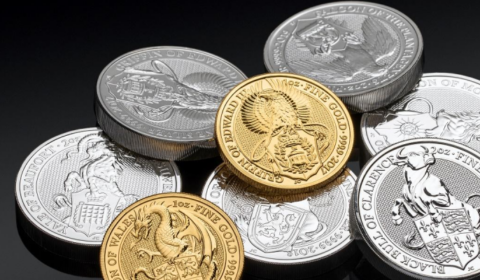When and Why Do Gold Prices Drop?

A hedge against inflation, gold has historically been deemed an investment haven. Experts suggest that gold is the safest commodity to buy if you’re looking for a secure investment.
However, we continually come across news of surges and reductions in gold prices. Even though gold may retain its value over time, these sudden drops in gold prices can be quite shocking to first-time investors.
While a permanent bull market for gold is unlikely, some laws of economics affect the downward movement in its prices:
A boost in supply
While gold mines are massive and plentiful, most of what they provide is waste. Apart from the millions of tons of ground rock they produce, it has been estimated that the gold ever mined could fit a football field.
Gold mined last year would only add less than the thickness of cotton cloth to the total. This means that the supply of gold is pretty much static from one time to another.
According to theoretical economics, where there’s a surge in supply of a commodity, its prices significantly decline. While a sudden boost in gold’s supply seems unlikely, during the years 2012 and 2013, we saw a massive reduction in its cost.
The precious metal lost approximately a third of its value. If you ask financial experts, they’ll blame a bear market for this sudden fall.
Central Banks
Perhaps the most significant market movers of gold prices are the central banks. When the economy is booming, and the foreign exchange reserves are increasing, banks opt to get rid of the gold sitting in their treasury. This is because gold is a dead asset, and unlike bonds, it doesn’t generate investment.
However, this is also the time when investors aren’t particularly interested in gold. Therefore, gold prices drop, and banks sell the commodity at a minimal cost.
Speculation
In financial terms, speculation signifies conducting a transaction that’s expected to bear fruitful results and holds a substantial risk of losing its value. When investors speculate the next possible move of governments and central banks, they start making choices accordingly.
For example, when the US Federal Reserve announced that it was shutting down its stimulus program, investors sitting on piles of gold held on to the shiny metal, which resulted in a spike in its price. Hence, gold has a special connection with inflation. When inflation rises, gold isn’t going to be your best bet, as it may see a drop in its value.
If you’re looking to invest in the yellow metal, you’re making the right decision. At Orion Metal Exchange, we offer a wide variety of gold coins and bullions for sale online. Take a look at our collection on our website.






